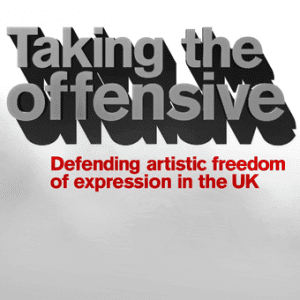11 Feb 2013 | Uncategorized

Many, many things will be written about the papacy of Benedict XVI in the coming days (as a good summary of Ratzinger’s reign, I’d highly recommend this from John Hooper).
For me, it’s worth noting, briefly, Joseph Ratzinger’s historic association with Vatican censorship.
Previous to becoming Pope in 2005, Ratzinger had been head of the Congregation of the Doctrine of the Faith — previously known as the Holy Office, and before that the Sacred Congregation of the Inquisition (bear with me).
The Holy Office had, in 1917, absorbed the Sacred Congregation of the Index. This was the body responsible for the maintenance of the Index Librorum Prohibitorum — the list of books and authors the Vatican prohibited Catholics from reading. This list, started after approval at the Council of Trent in the 16th century, contained authors from Giordano Bruno to Jean Paul Satre.
The Index was last updated in 1948. It’s very existence became an issue for debate during the discussions of the Second Vatican Council.
One of the main proponents of retaining the Index of banned books was Cardinal Frings, formerly the Archbishop of Cologne. Frings’s “Peritus” (theological consultant) during Vatican Two was Joseph Ratzinger. Frings and Ratzinger failed, and the Index Librorum Prohibitorum was abolished in 1966.
A few years later, when trying to think of a name for a new magazine documenting censorship around the world, poet Stephen Spender, journalist Michael Scammell and others settled, with an ironic nod to Rome, on “Index“.
And here we are today.
7 Feb 2013 | Uncategorized

Pennsylvania high school student Torre Scrimalli could face prison after sending a joke tweet
A US high-school student could face a criminal conviction and up to 14 years in prison after posting a joke on Twitter.
In a case reminiscent of the UK’s now-infamous “Twitter Joke Trial”, Scrimalli, 18, of Scranton, Pennsylvania has been arrested for “terroristic threats” after joking ahead of a local schools basketball game on 4 February:
“If there is a Facebook or twitter fight tonight over the HC MV game I will just blow up the schools and students involved. #goonsquad.”
The game was stopped in the first quarter and the venue evacuated.
According to local news station WNEP-TV, Scrimalli apologised, saying: “I had no intentions on scaring anyone or bringing violence into this. It was supposed to be a harmless tweet. I realised what it was after I posted it and I tried to get it off as soon as I could but I guess it was just too late.”
But authorities are pressing ahead with charges. Local Assistant District Attorney Gene Riccardo is quote as saying “Two municipalities, two school districts have been impacted by that decision so that’s why we’re going forward with these charges.”
Scrimalli was been released on $20,000 bail after h turned himself over to police on Tuesday night. Classmates and friends on Twitter have rallied around the hashtag #PrayForTorre.
The case comes as the United States debates weapon laws in the wake of December’s Sandy Hook school massacre, when 20 children and six adults were killed by a lone gunman.
Hat tip – Matt F
4 Feb 2013 | United Kingdom
 Index on Censorship’s Kirsty Hughes talks to Sir Hugh Orde, one of the UK’s most senior police officers, about protest, public order and politics
Index on Censorship’s Kirsty Hughes talks to Sir Hugh Orde, one of the UK’s most senior police officers, about protest, public order and politics
(more…)
1 Feb 2013 | Artistic Freedom, Index Arts, News, United Kingdom

Index on Censorship’s conference Taking the Offensive, held at London’s Southbank Centre highlighted how artistic freedom in the UK is under threat. The conference focused on how arts organisations support artistic freedom especially when controversy is arises.
(more…)




